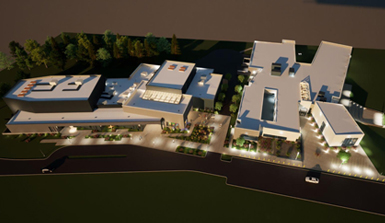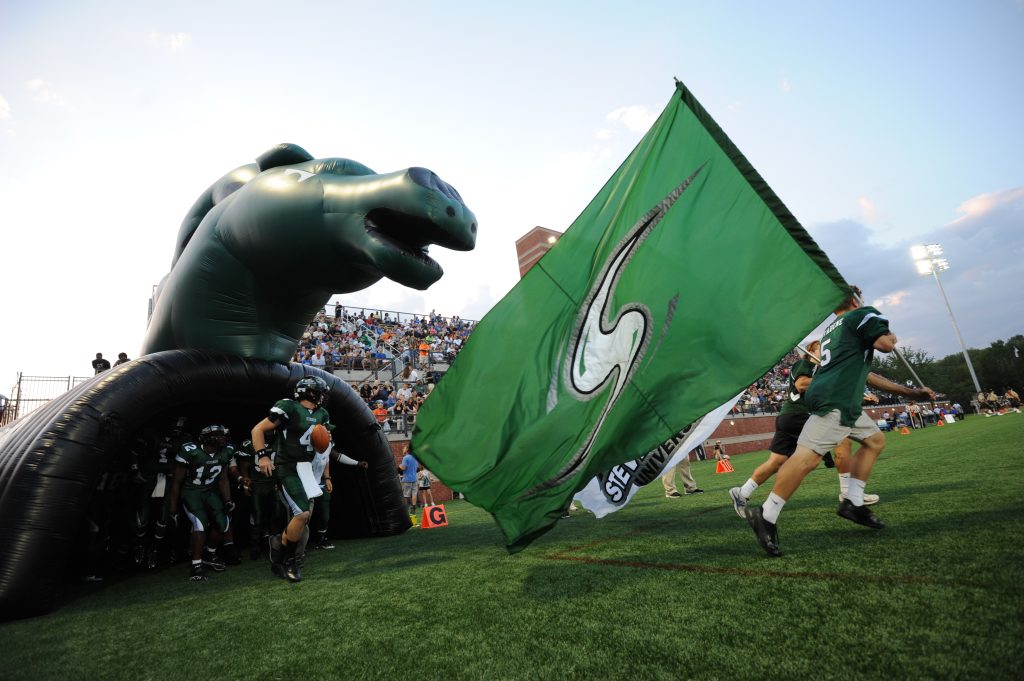
Six interns presented with Professor of Education, David W. Nicholson, at the John Dewey Society’s Centennial conference in Washington, DC, on April 7, 2016.
The title of the presentation, “Designing a Dewey School for 2016,” directly connected to the conference theme celebrating the centennial of Dewey’s landmark book, Democracy and Education, published in 1916.
Victoria Abrecht, Stephanie Miele, Brittany Somers, and Gina Weber described a hypothetical school, “The John Dewey Community School.” Each grade level pod features a biome for experiential, hands-on learning by students. For example, in the Kindergarten rainforest biome, students study different birds and animals in their natural habitat. For an interdisciplinary unit, Grade 2 students research skills necessary for survival in the harsh environment of the desert biome. In Grade 4, students collect data in the Arctic biome, examining climate change and exploring possible effects of global warming. In the ocean biome, Grade 5 students study ocean currents, plant life, and species of marine life. Students in all grade levels collaborate in their investigations, interact with scientists and researchers, and present their findings to the school and local community.
John Dewey Community School (designed by Victoria Abrecht, Stephanie Miele, Brittany Somers, and Gina Weber).
Judy Hemler and Megan Polis presented “The Dewey Experiential Nature Society.” The acronym DEN also refers to the school’s layout, which features dens where students can study individually or collaboratively. Students explore their own interests with teachers acting as facilitators and resources. Practical skills such as gardening, sewing, and cooking are emphasized. The students helped design the physical environment of the school to incorporate natural spaces for play and activities. During two recess periods a day, student choices include an extra large sandbox, rock climbing wall, swing set, climbing gym, and a zip line. In an open play area, students play games such as Frisbee golf and capture the flag. Students also have the option of tending the garden, hiking trails in the forest, or exploring the lake front.
Dewey Experiential Nature Society (designed by Judy Hemler and Megan Polis)
This unique conference brought together academics and scholars from across the nation as well as other countries to share their interpretations of Dewey’s philosophy of education and integrate his ideas into schools of the 21st century.





